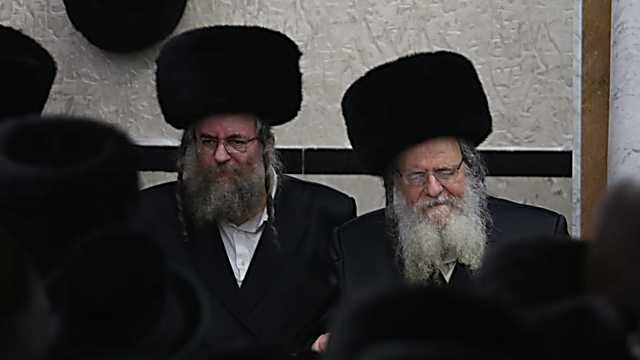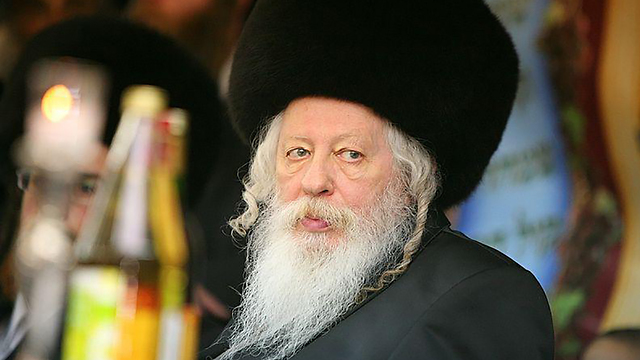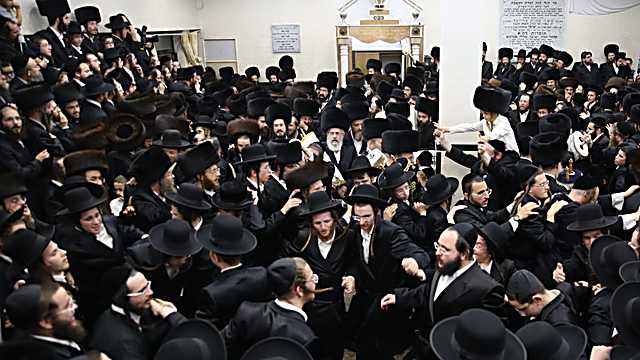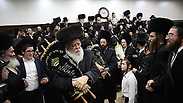

Israel's biggest Hasidic movement is a house divided
At the heart of the split in the Gerrer movement is rivalry between the admor (spiritual leader) and his cousin; ostensibly a row over the direction of the sect under Rabbi Yaakov Aryeh Alter, the roots of the row seem to be a power struggle between the two
Despite the political turmoil enveloping the rest of Israel, even the most up-to-date students of the Gerrer Hasidic movement are interested in one thing only, the active rebellion against a presiding admor (spiritual leader) in what seems to be a crisis on an historical scale for the ultra-Orthodox group.
Rabbi Shaul Alter, a prominent figure in the movement and the cousin of the current admor Rabbi Yaakov Aryeh Alter, decided in an unprecedented move to skip the Gerrer celebrations for Simchat Torah (Jewish holiday marking the end of the annual cycle of public Torah readings) last month, and instead hold alternative readings and celebrations for hundreds of his own followers in a different hall.
The Gerrer movement responded by warning its members that those who partook in the alternative festivities would be excommunicated, along with the rest of their family.
But the warning did not stop hundreds of followers from flocking to Rabbi Shaul Alter's party.
With this unprecedented move, Rabbi Shaul set up his followers as the opposition to the official Gerrer authority, crossing the Rubicon into full on rebellion.
For the last few years, a quiet but fierce rivalry has been brewing between the two rabbis of House Alter.
Although the official reason for the rift is said to be a difference of opinion about the way the current admor is running the sect, it is noteworthy that the title of admor is hereditary, and usually passed down from father to son. Both Shaul and Yaakov Aryeh Alter are sons of two previous admors.
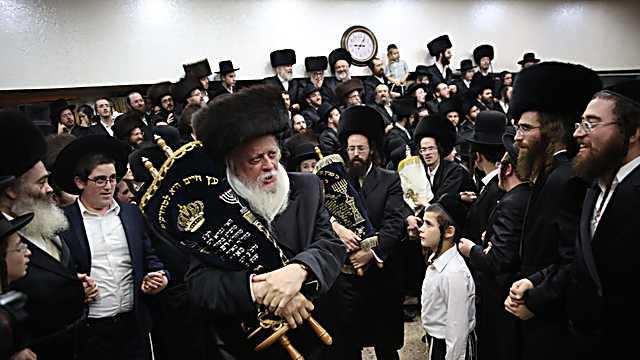
The conflict between the two hasn’t been a holy battle over God for a long while.
Shaul's followers are saying that the admor has been targeting their rabbi personally with efforts to isolate him, culminating in the closure of the Sfas Emes yeshiva in Jerusalem three years ago, which was managed by Shaul.
The mission to subdue pockets of resistance started after Shaul showed support for David Berliner, an American member of the Gerrer sect, during a row with the admor.
Berliner refused to abide by the admor's instructions to cede his place as director of a U.S. summer camp for Hasidic children to one of the admor’s own people, resulting in him being boycotted by the admor.
According to Shaul's followers, the harassment against him grew after the incident, sometimes even devolving into physical violence between the two groups, with the biggest insult being the admor's decision to not invite Shaul to his grandson's wedding.
Avi (not his real name) is a Gerrer follower who is close to the sect's official authority, but is secretly a sympathizer of Shaul.
"Berliner raised the miracle of rebellion after years of frustration," he says.
But Avi admits that he himself didn’t follow Shaul after he split away. "I'm afraid for my livelihood, and like me, there are a lot who are torn and on the fence."
"Rabbi Shaul feels like he has no choice but to present an alternative to the dictatorship that is the current authority," says Avi. "The problem is everybody's been dumbed down, they’ve been brainwashed like it's North Korea."
Avi says that true test of the rebellion is still to come. "Studies are returning to normal in the yeshivas, now we'll see if they'll really throw out all those that participated in Rabbi Shaul's festivities."
In recent years the Gerrer movement has risen to prominence in Israel, not only because of its political and economic power, but for the total (which some would call overzealous and blind) devotion of its followers to the admor, its cult-like implementation of draconian rules, and its community-led rule that invades the personal lives of its followers.














